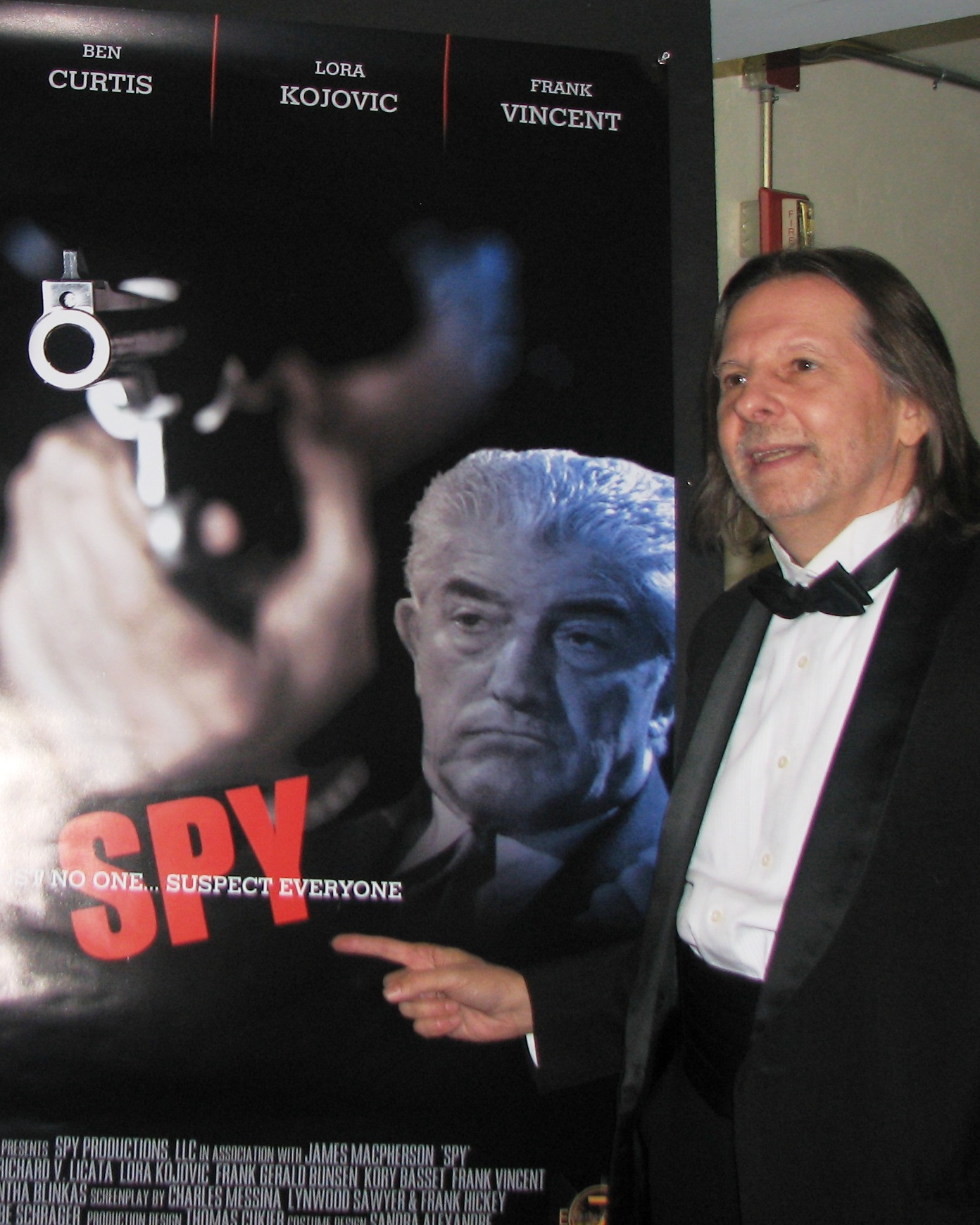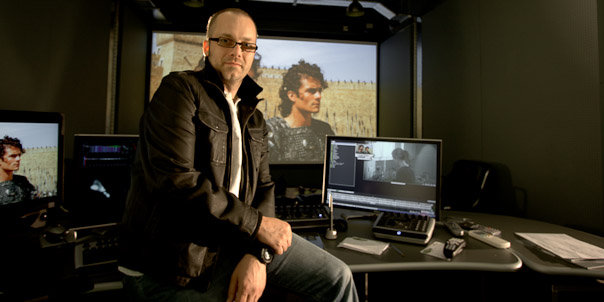ASK & DISCUSS
INDEXWhat's the best way to learn screenwriting?
10 years, 2 months ago - Shore Scripts
A recent addition to the Shore Scripts prize list for the winning feature script in our competition (yes, sorry, but I gotta to promote the comp too. www.shorescripts.com !!!!) is a free place on the London Film Academy's Screenwriting Foundation course next year. And having just read a very interesting article on The Bitter Script Reader's blog where someone asks "Is screenwriting a skill that can be learned?" (http://thebitterscriptreader.blogspot.co.uk/2015/07/reader-questions-is-screenwriting-skill.html), it got me thinking about what the value of screenwriting courses really are and what truly is the best way to learn the craft?
I personally completed the Screen Academy Scotland Screenwriting MA, which was pretty excellent, but not for the reason's you'd expect. I found that there wasn't much more than what I'd already learned from 'how to' books in the course material when it came to the actual craft of writing, but instead found the networking with other writers, producers, and directors totally invaluable.
Has anyone had similar experiences or can share their learning process?
Only members can post or respond to topics. LOGIN
Not a member of SP? JOIN or FIND OUT MORE
10 years, 2 months ago - Shore Scripts
Interesting feedback, but can you learn everything you need to know from a good how to book or is there vale in screenwriting courses too?
10 years, 2 months ago - Lynwood Shiva Sawyer
Firstly, decide if you're a glutton for abuse. After you've decided that in your heart-of-hearts you are indeed a masochist, you are halfway there.
Then shoot one of your own scripts.
Suddenly you'll discover that the throwaway scene that took up a third of a page will cost you two thousand pounds, require a hunt all over London for a two-word prop and require your actors to recite unreciteable lines.
It will give you a much greater appreciation of what production involves and what is doable and what is not doable the next time you put words on paper.
Also, although all the courses teach you what makes great scripts work, I've learned more watching bad movies and seeing what DOESN'T work.
Shiva (http://www.imdb.com/name/nm1403419/?ref_=fn_al_nm_1Lynwood)
SYMBIONT Firstly, decide if you're a glutton for abuse. After you've decided that in your heart-of-hearts you are indeed a masochist, you are halfway there.
Then shoot one of your own scripts.
Suddenly you'll discover that the throwaway scene that took up a third of a page will cost you two thousand pounds, require a hunt all over London for a two-word prop and require your actors to recite unreciteable lines.
It will give you a much greater appreciation of what production involves and what is doable and what is not doable the next time you put words on paper.
Also, although all the courses teach you what makes great scripts work, I've learned more watching bad movies and seeing what DOESN'T work.
Shiva (Lynwood)
http://www.imdb.com/name/nm1403419/?ref_=fn_al_nm_1Lynwood)
SYMBIONT http://eq-films.com/page3.htm
10 years, 2 months ago - Lee 'Wozy' Warren
@Nick - for a professional screenwriter, taking years to craft a script will end your career before its even begun. This is fine on a spec script that has become a passion project, but in the real world of writing for movies/tv, you need to be able to turn these things around FAST. No manager or agent will take you on if you're only able to produce one script every 2-3 years!!! They'll never make money from you and you wont make enough money to live.
Seriously, learn the craft first, sure. Then get great. Then get quick.
Wozy
10 years, 2 months ago - Lee 'Wozy' Warren
A book can only take you so far. What if you have a question? What if you need feedback from people familiar with the book your reading? How do you know if the content is relevant in the market anymore?
Personally, I think you need a course or a group of people learning from the same resource so that you can see how other people approach their writing from the same material. Otherwise you're on your own! There's value in seeing what others do and how they do it. And also getting feedback from a trusted group of people who all understand why you wrote the way you did.
And I think there are far too many books in the market that were relevant maybe 20 years ago but now the market has changed and so much has moved on. Learning out of date material does you no favors. Even some books written in 2015 are still espousing techniques that are no longer relevant. I wont name names, but I've seen writers follow the advice, then fail spectacularly when submitting their script to a producer.
However, when looking at a course, it's important to look at the alumni of the group. Are they making sales? Getting writing assignments? etc... You can't do that from a book...
Sure, read the books, but don't base your entire career on that alone. Use different strategies for different reasons. Writing is as much a business as it is an art.
My 2c worth.
Wozy
10 years, 2 months ago - Lee 'Wozy' Warren
I think some of the keys to a successful screenwriting course include things like:
Is the tutor relevant in todays industry?
Is the craft being taught in a way that is relevant to todays movies? i.e. not what worked 20 years ago!
Is the business side being taught - like how to marketing a script? How to interact successfully with producers?
Are the alumni writers making real deals?
Are some of those deals being produced?
How to handle success when it comes?
How to plan for a career?
My 2c worth.
Wozy
10 years, 2 months ago - Kays Alatrakchi
Q. What's the best way to learn screenwriting?
A. Read, write, repeat.
10 years, 2 months ago - Shore Scripts
Great discussion folks, especially Wozy. Agree with lots of points. Learning how to take criticism is important, but learning to critique your own work is equally important (and a lot harder). Having a tutor that's relevant is one thing, having a working tutor that's busy doing their own stuff could be another tho. And yes, asking yourself whether you're a glutton for punishment is probably something you should do early on. Thanks guys.
10 years, 2 months ago - Marlom Tander
Writing is writing.
You can write from the heart, and not give a damn about whether anyone takes any notice of you. E.g Emily Dickinson
You can write for maximum commercial house filling bums on seats impact. E.g. Shakespeare.
I don't think you can teach writing. I do think you can help writers improve their technique by highlighting what matters about screenplays, and IMO it has nothing to do with beats or plot points, (any writer worth their salt should have that pretty much nailed), and everything to do with allowing space for the acting to be eloquent and visuals to inform the audience. Those two things will tell the audience far more than any amount of exposition, but working them into a script requires a deft touch. And they are the key difference between a screenplay and "words on a page" formats.
Visuals are also the thing you can expect to fight over with the Director. Your script says that "Joe gets into his 6 year old Peugot 407". The Director says "great news, my mate's best friend is letting us borrow his Lotus, which will look much better". He's right, it will. But it probably won't ring true to Joe's character.
That doesn't mean you fight it. IF Joe has to have a Lotus, do the implied changes to the film make it better? Spotting good ideas is important. I once had a grizzled 50 year old bloke character and got notes "can they be a 20 ish, blonde bombshell kickass girl?".
WTF? But, actually, yes. Major rewrite as had knock on effects but much improved result.
Could one (mouselike) character ROAR in the final fight and deliver a roundhouse kick on her opponent? As written, no, she couldn't. But it was visually such a great idea, so again, rewrite and improved, (minor character got a better arc).
Other notes suggested a slapstick fight featuring a clown. Nope. No way. Over my dead body :-)
As to courses, I'm a sceptic - there seems to be far too much of a screenwriting/creative writing courses industry. Small groups reading and sharing each others work, lead by a good screenwriter though, that I think would be rewarding. And of course any opportunity to network has potential :-) But that's business, not course content :-)
10 years, 2 months ago - Nick Goundry
I just finished the six-month screenwriting course at the Met Film School in Ealing and I highly recommend it. It's had a massive impact on my understanding of how to structure a screen story, through the in-depth study of a diverse selection of films.
I would say that a good course is an important part of learning how to write a screen story that audiences are more likely to respond to. Crucially, it's also about learning how to respond to criticism, and about being aware of the fact that it routinely takes years to craft a screenplay that works to the satisfaction of everyone with a vested interest.
Nick




